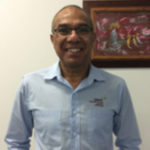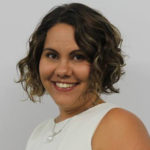What is ATSIHAW? | Why do we need an ATSIHAW? | Ambassadors | Videos | ATSIHAW 2021
Ambassadors
Meet Our Ambassadors
ATSIHAW has been able to recruit high profile Ambassadors to help spread the word about HIV in our communities and the role all individuals can play in preventing HIV and ending the stigma around HIV.
Interested in becoming an ATSIHAW Ambassador? Just complete this form.
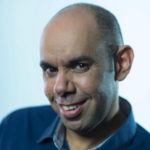 Steven Oliver
Steven Oliver
The fabulously funny Steven Oliver is our National Ambassador. Steven is a descendant of the Kukuyalanji, Waanyi, Gangalidda, Woppaburra, Bundjalung and Biripi peoples. He studied at the Aboriginal Music Theatre Training Program in Perth, and was subsequently accepted into the Music Theatre Programme at the West Australian Academy of Performing Arts (WAAPA). Steven’s musical, Black Queen Black King, was shown as part of Queensland Theatre Company’s Creative Development Series and his play, Proper Solid, produced by Jute Theatre in 2014, toured Queensland in 2016. He is also a writer, poet, actor and associate producer for ABC’s Logie nominated sketch show Black Comedy.
“I’m doing this because I want to help fight and breakdown the stigma associated with HIV and those living with it.”
Check out Stephen’s video message
___________________________________________________________________________________________________________
Professor Gracelyn Smallwood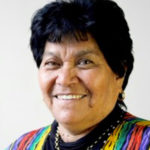
Professor Smallwood is a Birrigubba, Kalkadoon and South-Sea Islander woman born in Townsville in 1951. She is Professor of Nursing at Central Queensland University and Adjunct Professor at the Division of Tropical Health and Medicine at James Cook University (JCU), Townsville, Queensland (QLD), and is a Member of the Commonwealth Ministerial Advisory Committee on Blood Borne Viruses and Sexually Transmissible Infections.
“I am I have been advocating against the racism and violation of human rights against my people for the past 45 years. Extreme poverty, high unemployment rates, low self-esteem, with boredom, high rates of illness in particular, high rates of other sexually transmitted diseases symptoms are the perfect breeding ground for HIV/AIDS in any community. “HIV/AIDS must now be given priority attention in our communities and we should not wait until the tsunami arrives, we have to try and prevent its spread.”
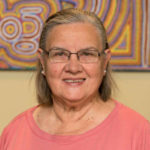 Pat Anderson, AO
Pat Anderson, AO
Pat is an Alyawarre woman known nationally and internationally as a powerful advocate for Aboriginal and Torres Strait Islander people. She has extensive experience in Aboriginal health and advocacy and currently serves as the Chairperson of the Lowitja Institute. In 2014, Pat was appointed Officer of the Order of Australia for distinguished service to Australia’s First Peoples.
“In the mid-1990s, I was part of the campaign to establish the national Aboriginal and Torres Strait Islander HIV/AIDS strategy. A lot has changed in the past 10 years, so get tested if you are worried because there are great treatments available. Let’s keep on talking about HIV, stay safe and look after each other.”
___________________________________________________________________________________________________________
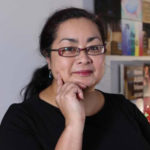 Marlene Kong
Marlene Kong
Marlene is an Aboriginal medical doctor and DrPH in Public Health.
“As a Worimi woman, I am passionate about improving the health of Australian Aboriginal and Torres Strait Islander people. This cannot be done without our people being involved in every aspect of health care, from the ground up to the Prime Minister of Australia, acting in good faith. Australia has a long way to go in bridging the big cultural gap that continues to exist in our practices today; HIV among our people being one of the growing and persistent health disparities. “I call upon the leaders of our nation – especially those working in HIV medicine – to lead by example in addressing this important gap.”
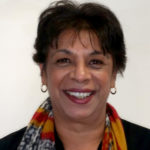 Sandra Van Diermen
Sandra Van Diermen
Sandra Van Diermen was born in Leigh Creek, in the Flinders Ranges of South Australia. Her parents were children of Cameleers – her Mum a Western Arrernte woman. Sandra identifies with both her Aboriginal and Afghani heritage. She works at the Department for Communities & Social Inclusion, engaging with community to ensure the Aboriginal voice is heard in reforming the Ageing and Disability sectors.
“Awareness weeks are designed to help us all acknowledge issues and understand that there is something we can all do. Once we believed that getting HIV was a death sentence, and that it affected only gay men – that if someone wasn’t gay then they were ‘safe’ from contracting the virus. Through awareness-raising, education campaigns and committed research, there is now a better understanding of HIV. Sadly stigma and discrimination remains and these can steal away that sense of belonging that forms part of our foundations, leaving people feeling lost and alone. I support ATSIHAW because it is time for a new way. It’s time to throw out attitudes that exclude fellow human beings who are already struggling to live full and healthy lives. We need to accept and include; to believe in and value everyone. You and me can stop HIV.”
___________________________________________________________________________________________________________
Dion Tatow
Dion Tatow is an Aboriginal (Iman and Wadja) and South Sea Islander (Ambrym Island, Vanuatu). Dion has contributed significantly to the HIV sector over a long period of time including working at in Aboriginal and Torres Strait Islander health for 20 years for both the Commonwealth (OATSIH) and State Governments (Queensland Health) and for almost 10 years at QAIHC. His roles have focused on program development and implementation and policy development and evaluation with a particular focus on social and emotional well being/mental health and sexual health/blood borne viruses in Aboriginal and Torres Strait Islander communities.
“Increasing rates of HIV infection amongst our population are concerning. We all need to increase our knowledge of HIV, protect ourselves against HIV infection and support those members of our communities living with HIV”
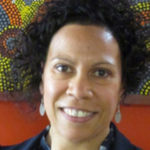 Bobby Maher
Bobby Maher
Bobby is a Yamatji woman with ancestral ties to the Pilbara and Kimberley, born and raised on Njaki country in the South West of WA. Bobby is passionate about promoting positive health messages in sexual health and respectful relationships through a human rights lens.
“It is important for our mob and all communities to have positive and clear messaging about HIV. If HIV gets into our communities it might be a real disaster for families. Understanding about preventing and managing HIV is really important. HIV is not a death sentence now. With good care, people with HIV can live a full and healthy life. Barriers such as discrimination and stigma can attack people’s self-esteem and prevents them from accessing health services. We need all our communities and services to understand this and to be the best that they can.”
___________________________________________________________________________________________________________
Sharon Bushby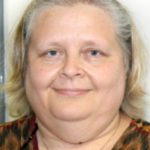
Sharon is an Aboriginal Health Worker who has worked in the community for the past 25 years.
“Utilising weeks such as ATSIHAW is crucial in the effort to raise awareness in an area that might be seen as a difficult topic to discuss. Increasing communities’ knowledge about the prevention of HIV, why it is important to be tested for HIV and the treatments that are now available, are all essential steps in the journey our communities are taking to better health. “As a health professional I feel that it is paramount that we feel comfortable to discuss risk behaviours and prevention strategies during health screening of our clients, such as using condoms and not sharing injecting equipment. We should encourage our clients to be tested for HIV and other BBVs.”
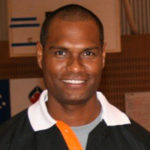 Mario Assan
Mario Assan
Mario is Senior Public Health Officer – Indigenous Sexual Health, with the Men’s & Women’s Health Program at the Thursday Island Primary Health Care Centre. He is a Torres Strait Islander with family connections to Badu Island.
“People living with HIV should be supported, loved and accepted by our communities so that they feel that they are still part of our community. Discrimination should not be tolerated by anyone; we are all one people, regardless of race, religion or sexuality. “It is important for the conversation about HIV and sexual health to be regularly highlighted on an everyday basis. We should normalise the conversation particularly in indigenous communities to raise awareness in regards to sexual health. HIV awareness should be discussed every day – not only on World AIDS Day.”
___________________________________________________________________________________________________________
Gabriel Bani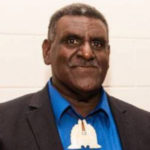
Gabriel is a direct descendent of Athe Bari, and the Kuyku garka (Head man) of the Major Tribe of Wagadagam, a sovereign nation of people of the Torres Strait Islands.
“My tribal totem is Koedal (crocodile), my tribal wind is the Kuki Guuba (Northwest Wind), and my tribal tongue is ‘Mabuyag’ which is a dialect of the Kala Lagaw Ya, the Western Island language. I speak my native tongue ‘Kala Lagaw Ya’ as my first language, Torres Strait Creole my second, and English is my third language. “As a cultural mentor and advisor, my presentations at local Forums, national Conferences, and gatherings, focus on Cross Cultural Communication – identifying barriers, and working towards positive solutions.”
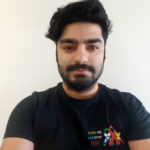 Shahmir Rind
Shahmir Rind
Shahmir is a Badimaya Yamatji man with family from Mount Magnet in Western Australia. He lives in Perth, is a medical student at Curtin University and is undertaking an Indigenous Cadetship with the Department of Health WA. Shahmir’s work focusses on getting info out to the community, supporting regional and metro events and finding new ways to engage with the community to further encourage testing and knowledge of HIV and BBVs.
“Our mob needs to understand the importance of being tested regularly, especially for our regional communities where accessing services may not be as frequent as our metropolitan communities. The conversation around HIV and BBVs needs to be normalised as there is a lot of stigma and myths surrounding what they are and how they are transmitted. ATSIHAW is a great opportunity to get these conversations started and break down some of that shame and fear. ATSIHAW is an awesome time for people who do have questions to be able to raise them with their peers or health workers.”
Amanda Sibosado
Amanda is a proud Bard and Wardandi woman who has more than 13 years experience working in Aboriginal sexual health across regional, remote and metropolitan communities. She was with SAHMRI working on the Young Deadly Free project from 2017–2020. She is passionate about holistic sexual health for our mob. She believes everyone has the right to safe, consensual, pleasurable sexual experiences.
“HIV is a preventable disease. Let’s keep our communities safe – use condoms and get tested for HIV regularly.”
___________________________________________________________________________________________________________
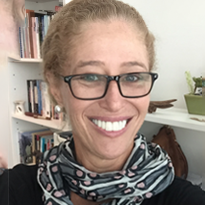 Professor Kerry Arabena
Professor Kerry Arabena
Professor Arabena is a Torres Strait Islander woman with a long history in Indigenous affairs nationally.
“We all need to do our bit to prevent HIV from escalating in our communities. “I know we have been talking about it for a long time, but now more than ever we need to look after ourselves and each other. We can do this by getting tested.”
 Jade Smith
Jade Smith
Jade is a Guereng and Southern Baradah Kapalbara descendant with family heritage from Ireland and France as well. He was born and raised mostly in Rockhampton, Central Queensland. Jade has worked as an Indigenous Youth Worker with Darumbal Community Youth Services, a Senior Indigenous Recruitment Officer/Cultural Awareness Officer, Team Leader of Woorabinda with Neato Employment Services and Indigenous Engagement Officer at CQ Youth Connect. Jade now works as an Indigenous Engagement Officer with CQ’s Sexual Health Department.
“I would really like to get the message out to our Indigenous communities especially that it is not shame to get a sexual health screening, it’s just like seeing a doctor for a broken arm or a cold. You see a Sexual Health Worker to check up on your sexual health to make sure everything is working the way it should be.”
___________________________________________________________________________________________________________
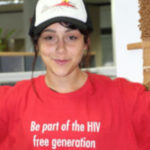 Shana Quayle
Shana Quayle
Shana is a Barkindji woman who now lives in Sydney. She was born in Albury NSW and grew up the small town of Leeton. Shana’s family is originally from Wilcannia. Shana is the Public Health Officer at the Aboriginal Health & Medical Research Council of NSW.
“How we respond & promote HIV awareness all comes down to how we understand interdependence – it is not someone else’s problem, it is everyone’s. Hence the reason I support ATSIHAW. I think that it is important that HIV Awareness along with knowledge is promoted because it is not just the physical well-being of an individual; it is the social, emotional and cultural well-being of all indigenous communities. THANK YOU ATSIHAW.”
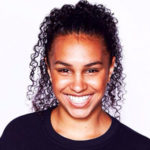 Celeste Carnegie
Celeste Carnegie
Celeste is a Birrigubba woman from far North Queensland. Celeste has been at the forefront of STEM (Science, Technology, Engineering, and Mathematics) education for Aboriginal and Torres Strait Islander youth and works as a Program Producer at Girl Geek Academy. She is passionate about working with Indigenous young people in the sexual health space and is eager to increase her knowledge of sexual and reproductive health.
___________________________________________________________________________________________________________
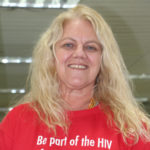 Robyn Fraser
Robyn Fraser
Robyn is a Kamilaroi woman, born at Pilliga in far west NSW and raised on the Pilliga Mission. She has lived in and around Aboriginal communities of Alexandria, Redfern and Waterloo in Sydney all her life.
“Health and well-being is of the utmost importance for all Aboriginal and Torres Strait Islander people. I support ATSIHAW as I think this is the time to promote HIV awareness in Aboriginal & TSI communities. Knowledge is power and this week is a useful time to help further promote and give power through education to help in the prevention of HIV.”
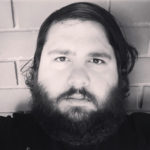 Dominic Guerrera
Dominic Guerrera
Dominic Guerrera is of Ngarrindjeri, Kaurna and Italian descent. Dominic has primarily worked as an Aboriginal health educator, with a focus on sexual health. Dominic is also a poet, writer and curator. His poetry has been published in Cordite Poetry Review and fine print, and was the recipient of the 2021 Oodgeroo Noonuccal Indigenous Poetry Prize.
“I want to see greater education and awareness of HIV within our communities, particularly around transmission and prevention. It’s important that we have health promotion and resources that are Aboriginal-specific, so it’s important to get involved in ATSIHAW events. I also want to see an end to stigma and discrimination towards people who are living with HIV; this includes making our health services safe spaces.”
___________________________________________________________________________________________________________
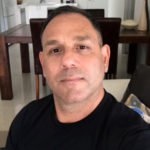 Phillip Sariago
Phillip Sariago
Phil Sariago is Darwin born and raised. Phil cultural lines are Gurindji from Wave Hill and the Jaru from East Kimberly Western Australia both from his mother’s linage. Phil have been living and working in Queensland for pasts 26 years now residing in Cairns. Phil is currently the Executive Officer 2Spirits at Queensland Council for LGBTI Health formerly the Queensland AIDS Council.
Phil has actively worked in Aboriginal and Torres Strait Islander affairs across Higher Education, Sexual and Reproductive Health and the Lesbian, Gay, Bisexual, Trans, Intersex, Queer, Sistergirl, Brotherboy Sexuality, Transgender Diverse Identities and Bodies sectors. Phil is passionate about improving the standard of Health and Wellbeing for our Aboriginal and Torres Strait Islander mob. Phil’s focus is to develop the capacity of individuals, communities and professionals through health literacy, education and training to improve visibility and healthcare access to safe and inclusive environments.
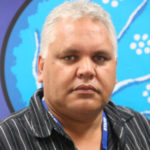 Brett Walley
Brett Walley
Brett is a Nyoongar/Yamatji man originally from Morawa WA, but he has lived most of his life in the Perth region. He has over 20 years’ experience in Aboriginal health, including in drug and alcohol counselling. He is currently Clinical Practice Support Officer/ TTANGO (Treat Test and Go), with the Aboriginal Health Council of Western Australia.
“I am passionate about improving the sexual health of our people through Education, Health awareness and promotion and accessing appropriate health services. I encourage all people to go to an Aboriginal Medical Service to talk to an Aboriginal Health Practitioner/Worker and your doctor to get a blood test if they concerned about their Status of HIV/AIDS. We also know that Intravenous drug use is on the rise in our community, we can educate our people on getting tested for Blood Borne Viruses and to not share needles and equipment.”
___________________________________________________________________________________________________________
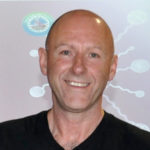 Garry Sattell
Garry Sattell
Garry is a proud descendant of the Ngatjumay and Noongar peoples. He now lives and works in Victoria on Wurundjeri and Boon Wurrung Traditional Lands. Garry was previously at the Victorian Aboriginal Community Controlled Health Organisation as the Sexual Health and Blood Borne Virus Coordinator, training and supporting Aboriginal Health Workers across the State, he also worked with the Western Australian AIDS Council, and Hepatitis Victoria.
‘I’m an HIV Ambassador because I’ve seen the harm that HIV and can do and I’ve seen what can be done to stop it! All it takes is for all of us to learn more about HIV, what it is, what we can do prevent it, and what we can do to support people with HIV in the community. I’m an ambassador because I know we need to break down the taboo around talking about sex and injecting drugs in our communities. We need to learn how to protect ourselves and our communities from HIV. Together we can stop it. We can stop it and with your help we will stop it. #UANDMECANSTOPHIV.’
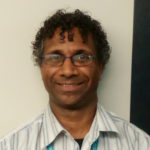 Zane Roe
Zane Roe
Zane is a Wocca Wocca, Gureng Gureng man, currently studying for a diploma in Aboriginal & Torres Strait Islander Primary Health Care. He works as a men’s Indigenous health care worker in sexual health for at Queensland Health.
“I’ve been interested in medicine and good health since I was a young fella. My job involves educating our community on STI’s and encouraging our mob to have regular sexual health checks. I would love to see our mob really support each other regarding sexual health and for us to break down the shame factor attached to this topic – in a way that’s culturally sensitive and mindful of each person’s journey in life. Let us stand together as One Mob and fight against HIV. Together nothing is impossible.’
___________________________________________________________________________________________________________
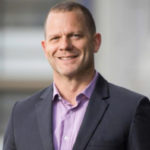 Professor Shaun Ewan
Professor Shaun Ewan
Professor Ewen is the Foundation Director of the Melbourne Poche Centre for Indigenous Health at The University of Melbourne. He has held the position of Associate Dean (Indigenous Development) since its inception in 2010. Professor Ewan has a clinical background in physiotherapy, and holds postgraduate qualifications in international relations and education.
“If you’ve put yourself at risk either by having unprotected sex with a new partner or through sharing injecting equipment when injecting drugs, it’s better to get tested. Know your status so you look after your health and the mob’s health.”
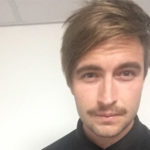 Trent Wingard
Trent Wingard
Trent is a 25 year old proud Aboriginal man (Ngarrindjeri / Kaurna / Boandik ) from Murray Bridge in South Australia. Following in his grandmother’s footsteps, Trent has always been passionate about closing the gap and educating the community on the importance of a healthy and positive lifestyle. He currently lives in Adelaide and works for the Aboriginal Health Council of SA (AHCSA) as the Youth Project officer in the Tackling Smoking and Healthy Lifestyle Program, delivering education on the risks of smoking, the importance of regular exercise and on maintaining a healthy lifestyle.
“It’s important to educate our youth on HIV awareness and the importance of health and well-being in our communities. As a young Aboriginal man I want to help breakdown the stigma associated with HIV and those living with it. We all should stand up and raise awareness together as one!”
___________________________________________________________________________________________________________
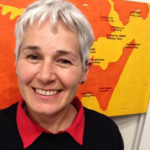 Mish Sparks
Mish Sparks
Mish is a Koori woman born and living in Sydney. She is a proud descendant of the Bundjalung nation (Northern Rivers, NSW). She is a media, arts and events producer, working with community on events around HIV awareness, community connection and health promotion
“I have lots of friends living with HIV – men & women, young & old, black & white, gay & straight. HIV doesn’t discriminate. “I support ATSIHAW because I want everyone to be able to take control of their health for a long and happy life. HIV is usually passed on when someone doesn’t know that they’re carrying the virus. If you’ve ever shared any injecting equipment, or if you’ve had sex without a condom with someone whose HIV status you aren’t sure of, then ask for a test at an AMS, GP or Sexual Health Clinic. Together we can stop HIV.”
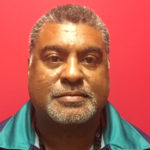 Richard Mola
Richard Mola
Richard has worked in the field of Indigenous Sexual Health for the last 17 years – in the Men’s & Women’s Health Program on Thursday Island. He is a Murray and Darnley Islander descendant.
“I support ATSIHAW because it informs and educates the Torres Strait community about the risks involved with unsafe sex, having more than one partner and the importance of regular screening and testing. “We need to let the community know about the importance of knowledge and understanding in regards to sexual health.”
___________________________________________________________________________________________________________
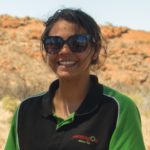 Bianca Marks.
Bianca Marks.
Bianca is a Ngarrindjeri woman living on Kaurna yerta, in Adelaide. Bianca has worked in the sexual health sector for the past 8 years, and have delivered sexual health and relationship well-being training and education to workers and community members across South Australia (and occasionally beyond). She has a particular interest in the development of sexual health activities and resources for young people.
“We need to talk about this stuff; we can’t ignore it and we can’t dig our heads in the sand. We need to break down the shame and stigma surrounding HIV and start having these conversations so we learn, and share, how to protect ourselves and each other”.
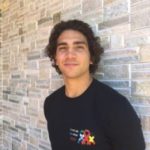
Nakia Cockatoo
“Nakia is a Yupangathi, Iwaidja and Marrithyel man. He grew up in Humpty Doo before moving to Darwin. In 2014, Nakia was drafted into the AFL to play for Geelong and is now playing for the Brisbane Lions. This has given the opportunity for not only Nakia,but his partner Grace and their daughter Lenah, to connect with his family on his fathers side who are in Queensland. He loves getting back up to the Top End when he can to see family, friends and spend time out at Coburg Peninsula with his grandparents on his mother’s side of his family.”
As a professional athlete, Nakia understands the importance of good physical and mental health: “It’s really important for young fellas to get an HIV and STI check regularly. It’s respectful to yourself, your partner and your community. There’s no need to get sick from sex; even if you’re feeling ok, go get a simple check done. It’s private, so no one knows and you don’t have to feel shame. And always plan ahead and have a condom ready!”
___________________________________________________________________________________________________________
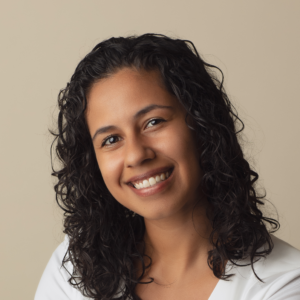 Brenna Bernardino
Brenna Bernardino
My mob are from Badu Island on my dad’s side and my mother’s side is from Timor-Leste. I call Brisbane home, but I currently reside in Okinawa, Japan due to my husband’s work. I recently completed a Master of Public Health at the University of Queensland and my capstone project assessed contraception knowledge and access among Indigenous women across South-East Queensland. I have research assistant experience in developing Indigenous health education at universities in Australia and with an urban Native American community in the USA.
I support ATSIHAW because I am passionate about reproductive justice and improved sexual health outcomes for all. I want to advocate for Indigenous women and Indigenous heterosexual people who are a less well-known group that are disproportionately affected by HIV. We also need our community to become more educated about technological advances in HIV treatment and testing to work towards eradicating HIV for future generations.







